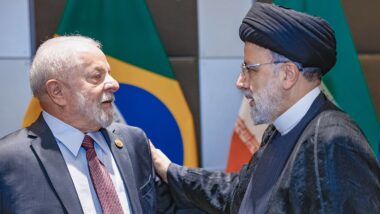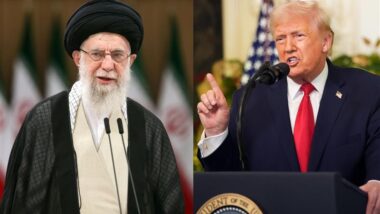
Ouça este conteúdo
Within the human dignity chapter, the issue of abortion deserves special consideration in view of its relevance and the consequences of a permissive mentality in this regard. An unborn child is the most defenseless and innocent of human beings, and for this reason, it needs a more emphatic protection because it is incapable of enforcing its rights by itself.
Apart from any other political, criminal or sociological consideration, it is undoubtedly the fact that abortion is the deliberate elimination of a human being whose humanity – pardon the redundancy – is not based on philosophical or religious convictions, but on science which attests to the emergence of a new individual, with a unique genetic code, from the meeting of male and female gametes. “If a fertilized egg is not in itself a human being, it could not became one since nothing is added to it”, said the French pediatrician and geneticist Jérôme Lejeune, the discoverer of the cause Down Syndrome. In fact, there aren’t any changes in the ontological character after the moment of conception, there is no defining moment in which a non-human would pass on to the stage of “human being”. What there are are only stages of development of a being that has been fully human since its inception.
"Science attests to the emergence of a new individual, with a unique genetic code, from the meeting of male and female gametes"
To bypass this indisputable observation, the supporters of the right to abortion have appealed to theories about what constitutes a “person”, using this concept to define the moment in which someone becomes a subject to rights. Arbitrarily, it is established, for example, that a human being becomes a person at the time of birth, or from the moment in which it becomes self-aware; before that, it is a human being (in a concession to what science claims about the status of the embryo and the fetus), but it is not a “person”; therefore it has no rights and consequently it can be eliminated. This thought is manifested in its cruelest form in the ideas of the Australian bioscientist Peter Singer, who also justifies infanticide, an act that, in the form of “post-birth abortion”, has gained adepts in the scientific community.
This kind of reasoning, however, cannot hide its utterly arbitrary nature – and, for being arbitrary without any relation with objective reality, it is easy to manipulate in any extreme direction: from those such as Singer himself, who goes on to grant greater dignity to a dog, a dolphin or a chimpanzee than to a human newborn baby, to those that remove peoples dignity, including adults, because they don’t conform to a “perfection” standard. It is no coincidence that Margaret Sanger, founder of the largest chain of North-American abortion clinics, Planned Parenthood, was in favor of Eugenics.
“In the alleged struggle between the mother and child’s interests, a responsible society can only provide one answer: full respect to both”
The dissociation between the concepts of human being and person allows, in its most dramatic consequence, the possibility that entire groups have their intrinsic dignity denied. To accept the premise that only a few men are people and have rights, what reason would stop a governing party restricting the concept of person a little further, rejecting “undesirable” communities or ethnicities? No reason. Either we accept the reality, challenging but truthful, that dignity is an inalienable attribute of every human being, without restriction, or the door is open to the most perverse arbitrariness, backed by the convenient selectiveness of those that “deserve” the definition of person.
Although it is crucial to remember that an emphatic defense of the necessity to protect human life since its conception doesn’t exclude, in any way, an attitude of compassion for the drama of women that, for many reasons, judge not having another option if not abortion – in fact, the defense of life requires this compassionate view. But we do not consider that the solution to this problem is making these woman responsible for the elimination of their own children, an irreversible act that often leaves deep psychological scars. The community (and the state, in the absence of the first) needs to be mobilized to welcome these mothers and show love to them and their babies, offering them opportunities to raise the children with dignity or, if applicable, to facilitate the adoption process. “In the alleged struggle between the mother and child’s interests, a responsible society can only provide one answer: full respect to both”



